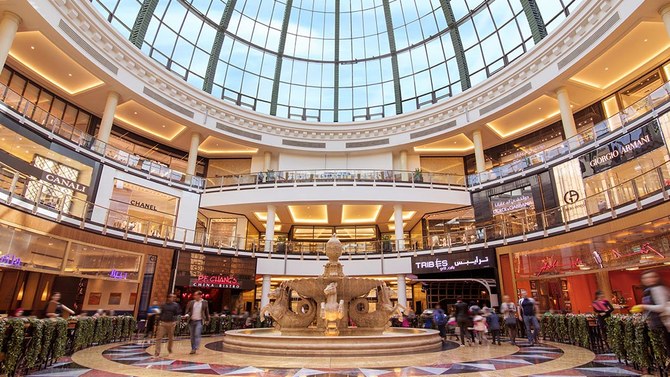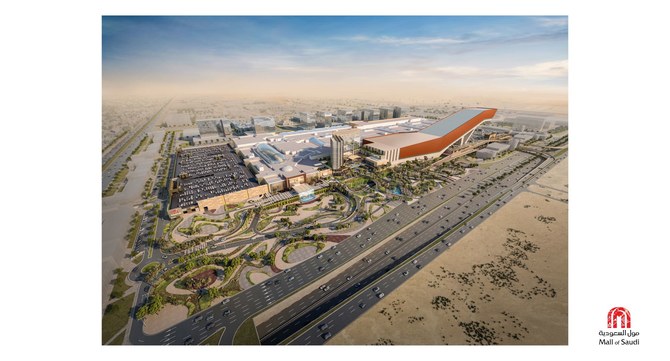DUBAI: Dubai’s Majid Al Futtaim has signed an agreement with global infrastructure consulting firm AECOM to help mastermind the development of the retailer’s Mall of Saudi, its flagship project in the Kingdom.
The mall is set to break ground in the fourth quarter of this year in Riyadh, as part of a mixed-use development in the north of the capital city.
AECOM will be the lead design consultancy on the project and supervise construction of the mall, which is expected to consist of about 600 stores across 300,000 square meters of gross leasable area. At present, half of the space has been reserved by retailers.
Mall of Saudi will also include the largest ski slope and snow park in the Middle East, luxury hotels and branded residences covering about 2,000 keys and on a 214,000 square meter area.
The mall will also include a Carrefour hypermarket and 31 VOX Cinema screens, including the world’s largest IMAX, and a Magic Planet.
Majid Al Futtaim, which employs 43,000 people in 17 markets and owns and operates 27 shopping malls, 13 hotels and four mixed-use communities, reported a 7 percent year-on-year fall in revenues to AED32.6 billion ($8.88 billion) in 2020, resulting in a net loss of AD2.7 billion, compared to a loss of AED1.9 billion in 2019.
Majid Al Futtaim CEO Alain Bejjani said in a statement in February: “The pandemic has not only been a financial crisis, but an even bigger crisis of trust. We have built our organization to withstand adverse economic conditions, so our primary focus was on acting swiftly to protect our customers and employees, as we worked diligently to restore trust and maintain non-negotiable commitments to our sustainable business practices.”
Across its operations, revenue in its mall division was down 24 percent to AED3.5 billion and its hotels recorded a 60 percent drop in occupancy rates, while the biggest impact was felt in the Majid Al Futtaim — Ventures division, which manages its leisure, entertainment and cinema assets, where revenue fell 49 percent to AED1.4 billion.
In 2021, Majid Al Futtaim continued its expansion, with the opening of City Center Al Zahia in Sharjah in March, while the Mall of Oman is due to open later this year. Its retail operation is pushing ahead with expansion into Kenya, Uganda, and Uzbekistan and has plans to scale up its e-commerce operation in Saudi Arabia. Majid Al Futtaim — Cinemas also plans to open 30 VOX Cinemas in Saudi Arabia this year.
“The fact that we have experienced growth in some of our businesses during a year of unprecedented disruption is a testament to the importance that should always be placed on people, the planet and our collective progress. For me, this is stakeholder capitalism in action, and it makes me optimistic about our future,” Bejjani said.
“Every country has had their own set of challenges to deal with. The reality is the fastest recovery is the UAE . . . and we expect very fast recoveries in other markets like Saudi Arabia,” Bejjani told the AP news agency in April. “We have also seen Egypt being very resilient.”



















